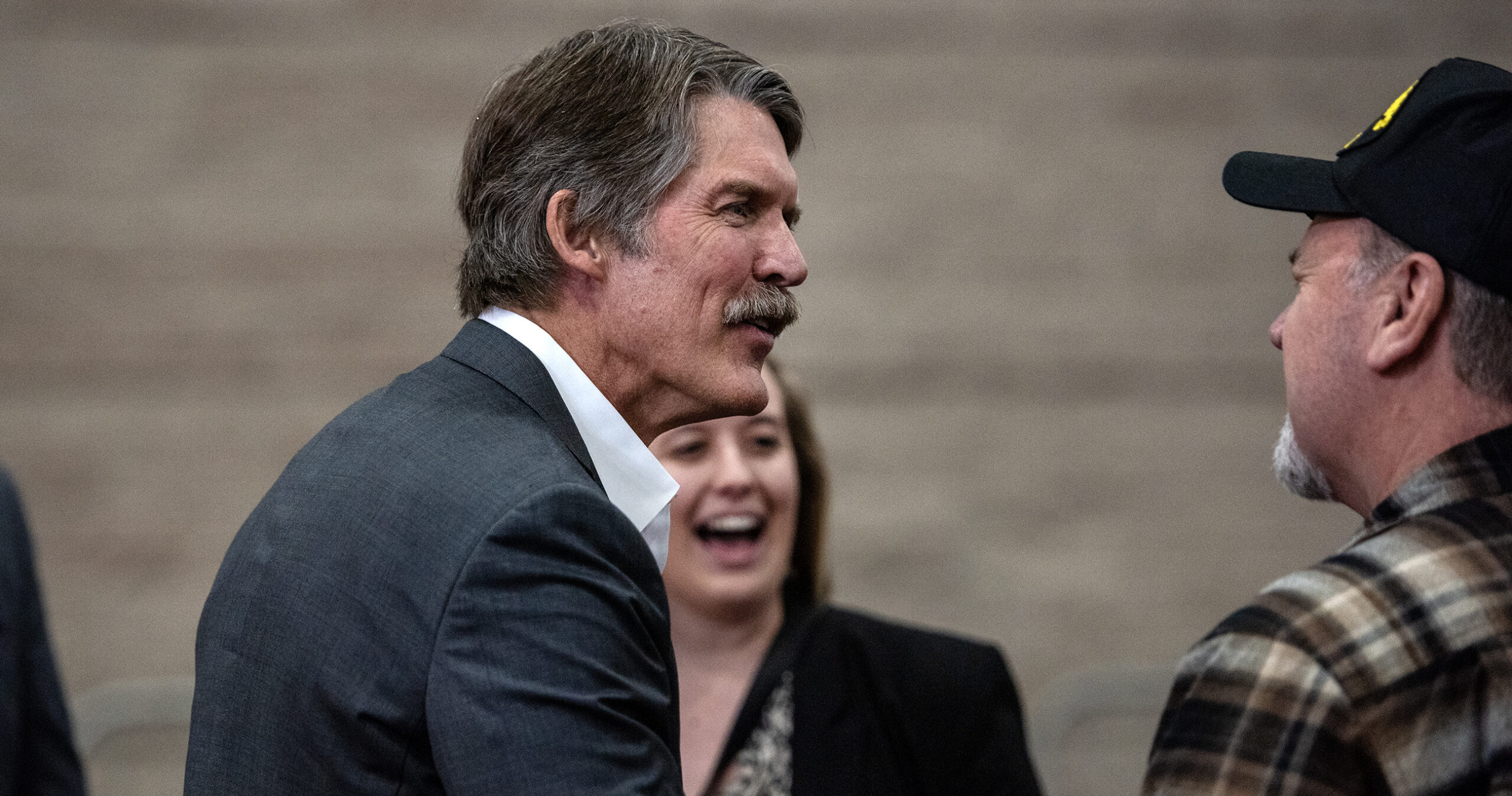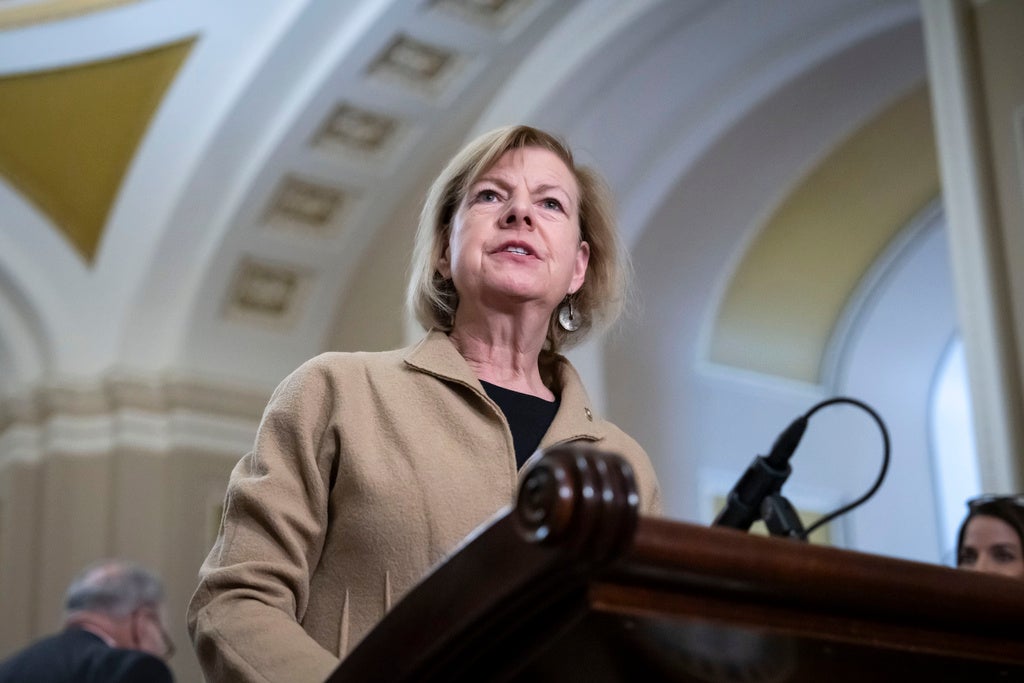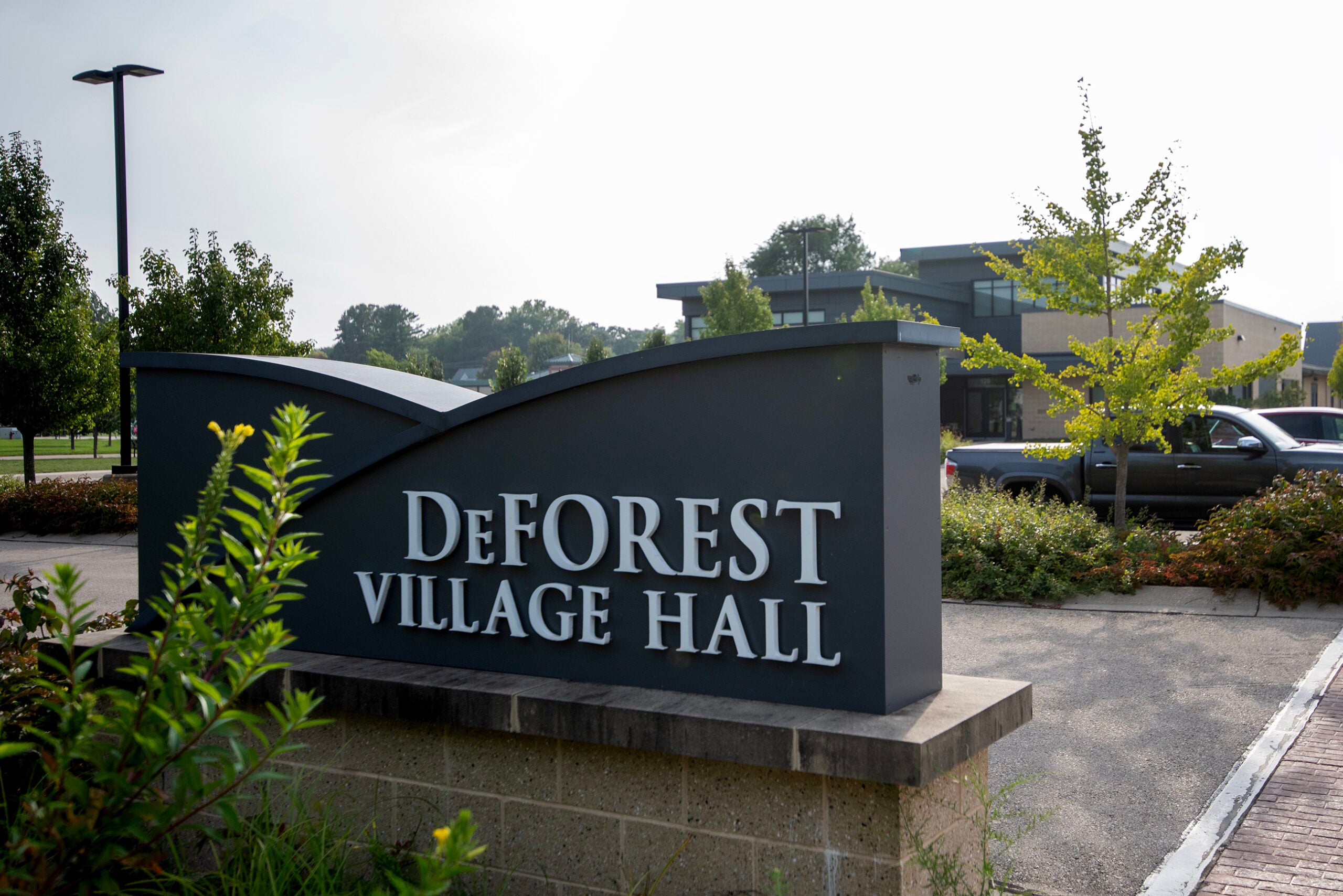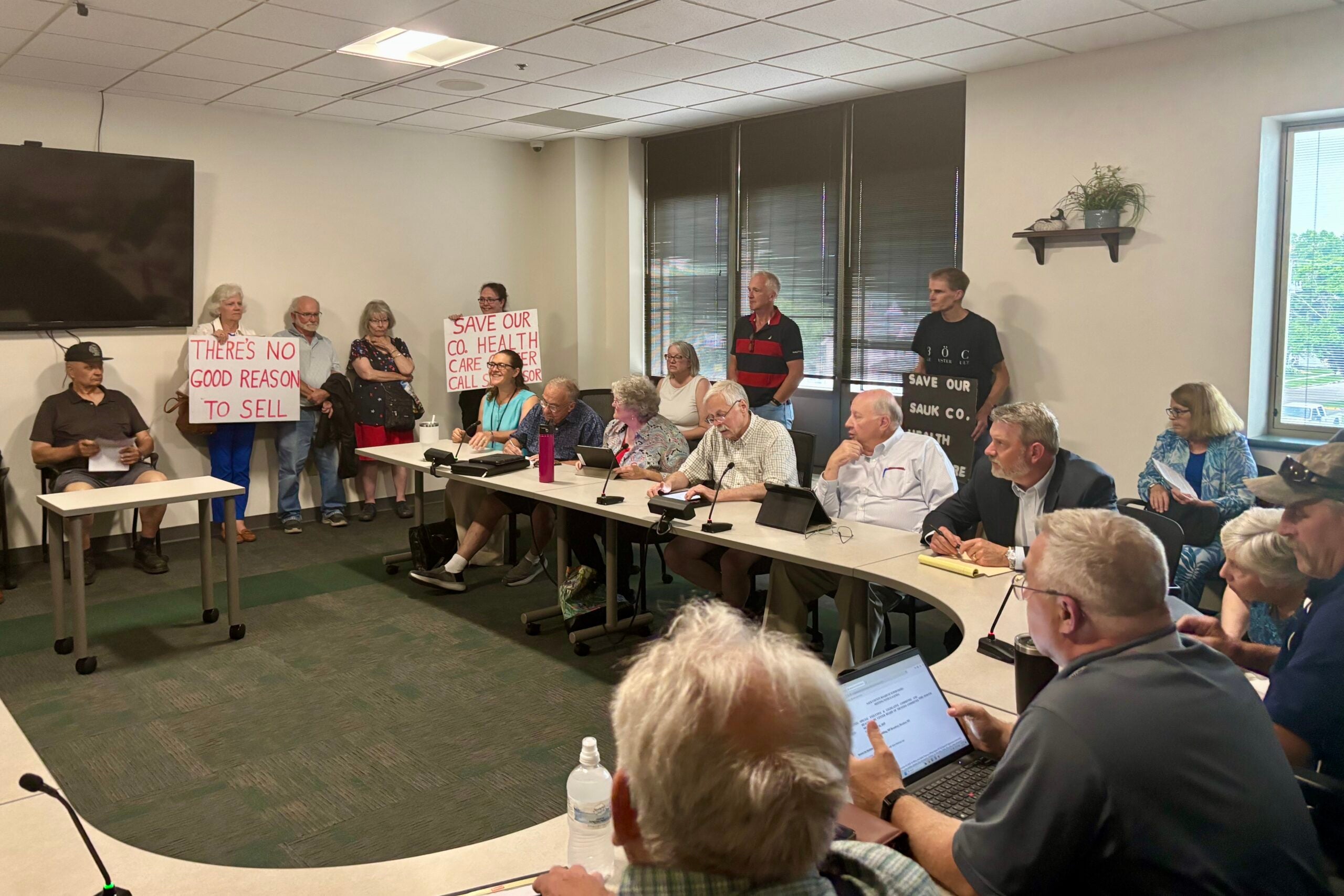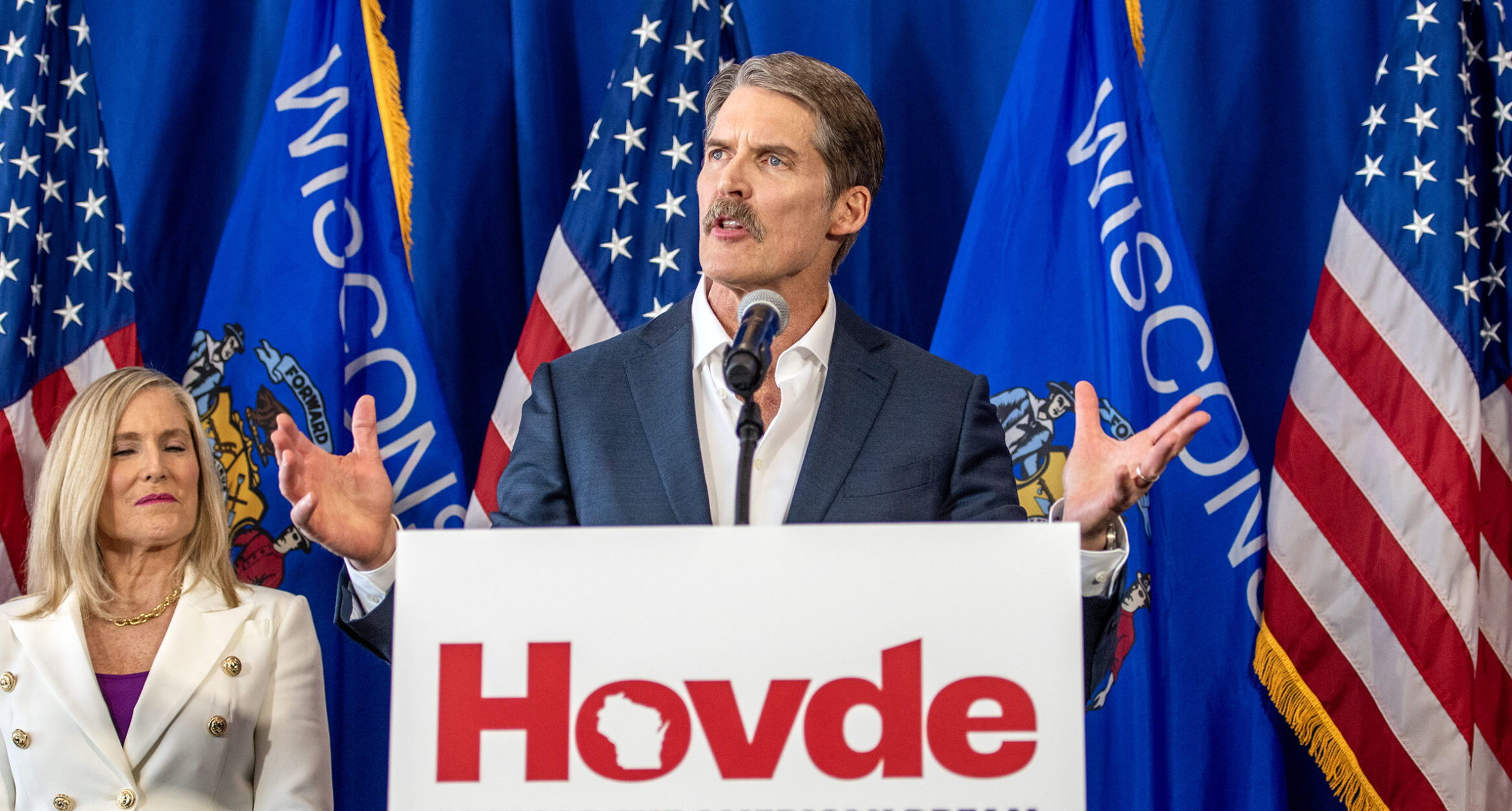U.S. Senate candidate Eric Hovde said recently most nursing home residents are not “at a point to vote” because of limited life expectancy, reviving an argument some conservatives made in the wake of the 2020 election.
Hovde made the remarks Friday while appearing on the Guy Benson Show, a Fox Radio program, in response to a question about criticisms of the 2020 election process.
The businessman and leading challenger for Democratic U.S. Sen. Tammy Baldwin’s seat said he did not believe the election had been stolen, but he reiterated claims about improprieties in Wisconsin, including a debunked claim that some nursing homes had 100 percent voter turnout.
News with a little more humanity
WPR’s “Wisconsin Today” newsletter keeps you connected to the state you love without feeling overwhelmed. No paywall. No agenda. No corporate filter.
“Well, if you’re in a nursing home, you only have five, six months life expectancy. Almost nobody in a nursing home is at a point to vote, and you had … adult children showing up and saying, ‘Who voted for my 85- or 90-year-old father or mother?’” Hovde said.
Ben Voelkel, a spokesperson for Hovde’s campaign, said the candidate was not arguing that nursing home residents should not vote.
“In no manner did Eric Hovde suggest that elderly people should not vote,” Voelkel said. “He was referring to specific cases in Racine where family members raised concerns about their loved ones voting.”
In 2021, the Racine County Sheriff’s Office looked into claims from family members that their loved ones were not fit to vote, arguing that the Wisconsin Elections Commission had violated the law — a claim the commission strenuously denied, and which advocates for voters with disabilities said belies how and when a person’s right to vote may become ineligible.
Advocates for older voters and voters with disabilities said Hovde’s claims echo misinformation about the rights of nursing home residents.
“Regardless of length of stay, illness or a change in living situation does not dictate someone’s ability to vote,” Lisa Hassenstab, public policy manager at Disability Rights Wisconsin, wrote in an email.
“Every person eligible to vote in Wisconsin maintains that eligibility unless that right is removed due to determination of incompetency by the court, for which there is an established process.”
According to research published in the Journal of the American Geriatrics Society, about half of residents in skilled nursing facilities died within six months of placement. The average length of stay was just over a year.
Those numbers likely don’t account for younger people who use care facilities due to illness or injury because they don’t have access to recovery or rehab resources, Hassenstab added.

Hovde is running against Baldwin as she seeks her third term in Washington. Baldwin’s campaign did not respond to a request for comment.
Martin Hernandez, an advocacy director for AARP-Wisconsin, would not comment on Hovde’s specific remarks. But speaking broadly, Hernandez said his group was working to expand access to voting for residents of care facilities.
“We should be working to make it easier for them to cast their ballot, not creating more distractions or barriers for them to vote,” he said.
Nursing home voting a subject of 2020 scrutiny
Wisconsin state law requires local election officials to send “special voting deputies” into some residential care facilities to help with the absentee voting process.
But that process was disrupted in 2020, when the bipartisan Wisconsin Elections Commission voted that special voting deputies would not be able to enter those facilities because of COVID-19 concerns.
That became a lynchpin of accusations of impropriety in Wisconsin’s 2020 elections.
Former Supreme Court Justice Michael Gableman, who was hired by Assembly Republicans to investigate the 2020 election, claimed in his report the WEC rule change led to the emergence of coerced votes from nursing home residents. Former President Donald Trump later alleged, without evidence, those practices led to “thousands and thousands and thousands of crooked votes.”
And Hovde repeated those claims on Fridays’ radio program.
“We had nursing homes where the Sheriff of Racine investigated, where you had 100 percent voting in nursing homes,” Hovde said.
Those claims have not stood up to multiple investigations and court challenges. A Wisconsin State Journal investigation found that just one Dane County nursing home — with 12 residents — had 100 percent voter turnout, and that elsewhere turnout ranged from 42 to 91 percent.
The Racine County investigation came after a complaint from the daughter of a nursing home resident who reportedly cast a ballot but then died before Election Day.
Deputy Michael Luell said his office had followed up on that complaint and found that absentee voting from care facilities was higher than usual, and some residents had voted who had not voted in recent elections. Senior citizens vote at higher rates than younger Americans, according to Census data, and the 2020 presidential election saw the country’s highest overall voter turnout since 1900.
Luell also said he asked family members at one facility whether their loved ones could have requested and completed a ballot. Some of those family members responded no.
Under the state Constitution, a person’s right to vote can only be removed if they have been legally deemed incompetent by a court.
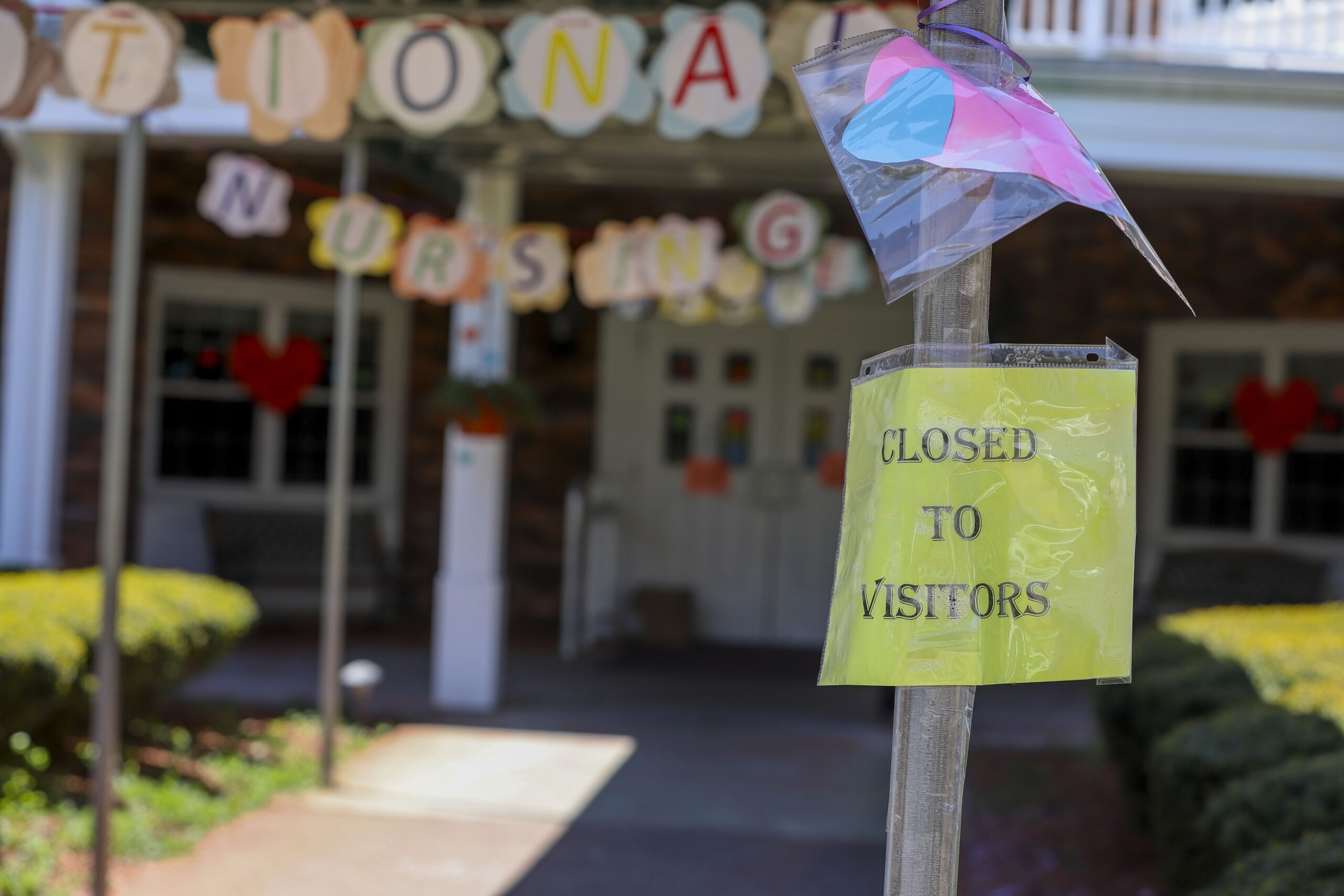
According to a review of the 2020 election by the nonpartisan Legislative Audit Bureau, about 11 people likely had their absentee ballots counted even though they died before Election Day, out of about 3.3 million ballots cast.
In response to those concerns, GOP lawmakers advanced a bill this session that would have tightened rules about voting in care facilities. The proposal would have continued to allow election officials to send voting deputies into care facilities to help people who cannot vote in person, but would require those meetings to be arranged at certain times and for residents’ relatives to be notified.
At public hearings last year, advocates for the aged population argued the bill violated residents’ privacy rights.
Democratic Gov. Tony Evers vetoed the plan on March 21. He previously vetoed a shorter version of this proposal.
The AARP’s Hernandez said proposals like that emerge from misinformation about what happens within nursing homes during election seasons.
“Our stance … is discouraging any barriers to folks casting their ballot, and especially for those who are living in nursing homes, where there’s already going to be some barriers present,” he said.
Claims about 2020 election falsehoods persist
In the interview, Hovde pointed to other criticisms from conservative circles about the 2020 election.
“Do I believe the election was stolen? No. But did things happen in that election that were very troublesome? Absolutely,” Hovde said.
His critiques included the influx of money from a nonprofit organization founded by Facebook founder Mark Zuckerberg to support election administration. Those grants, which went to 216 communities across the state, became known as “Zuckerbucks” among critics who argued that they amounted to undue influence, especially in larger, more Democratic municipalities.

During last week’s presidential primary election, a slim majority of Wisconsinites also voted to abolish the practice of allowing private money to support election administration.
The outcome of Wisconsin’s 2020 election, in which President Joe Biden narrowly defeated former President Donald Trump by about 20,000 votes, has been affirmed by numerous court cases and audits.
Nevertheless, at a Green Bay rally last week, Trump continued to claim the 2020 election had been rigged against him.
Hovde also spoke at that event, where he earned Trump’s endorsement.
“Eric, I am giving you my complete and total endorsement, so go out and win,” Trump said. “You better win.”
Keeping Baldwin in Washington is likely a top priority for national Democrats who are defending 23 seats this fall to maintain their majority in that chamber. Republicans are only defending 10 seats, and are likely setting their sights on more flippable seats in Montana and Ohio.
Wisconsin Public Radio, © Copyright 2025, Board of Regents of the University of Wisconsin System and Wisconsin Educational Communications Board.

